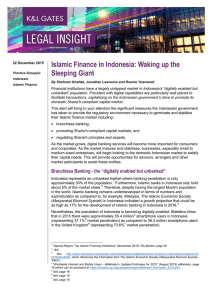*When a man stops believing in God, he doesn*t believe in nothing
advertisement
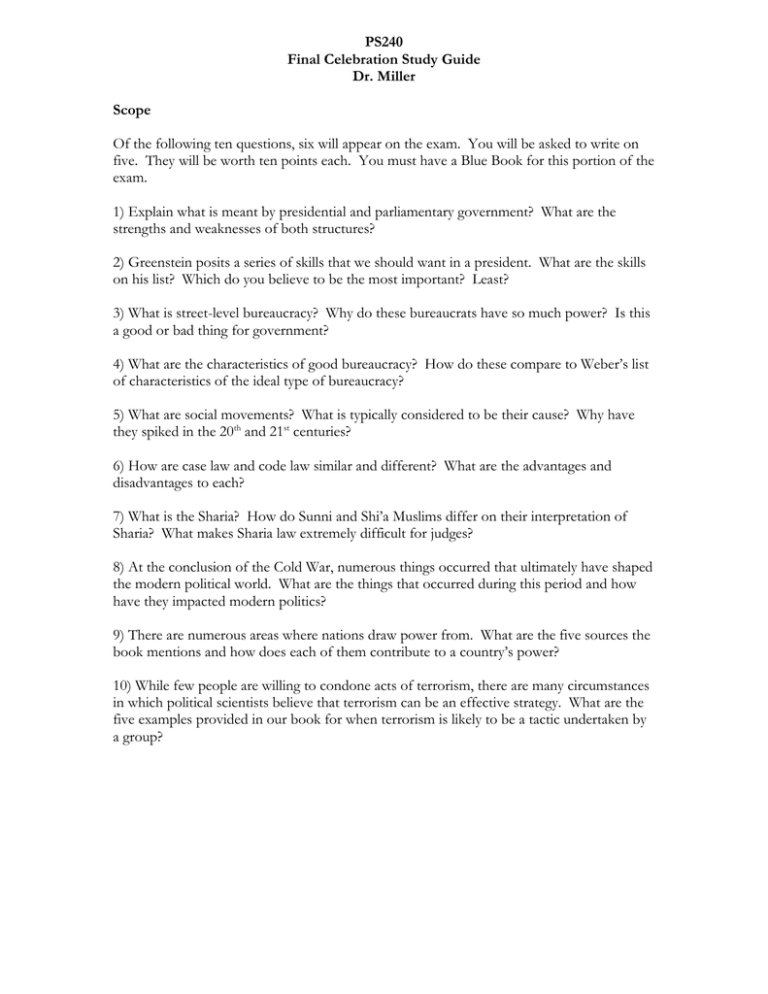
PS240 Final Celebration Study Guide Dr. Miller Scope Of the following ten questions, six will appear on the exam. You will be asked to write on five. They will be worth ten points each. You must have a Blue Book for this portion of the exam. 1) Explain what is meant by presidential and parliamentary government? What are the strengths and weaknesses of both structures? 2) Greenstein posits a series of skills that we should want in a president. What are the skills on his list? Which do you believe to be the most important? Least? 3) What is street-level bureaucracy? Why do these bureaucrats have so much power? Is this a good or bad thing for government? 4) What are the characteristics of good bureaucracy? How do these compare to Weber’s list of characteristics of the ideal type of bureaucracy? 5) What are social movements? What is typically considered to be their cause? Why have they spiked in the 20th and 21st centuries? 6) How are case law and code law similar and different? What are the advantages and disadvantages to each? 7) What is the Sharia? How do Sunni and Shi’a Muslims differ on their interpretation of Sharia? What makes Sharia law extremely difficult for judges? 8) At the conclusion of the Cold War, numerous things occurred that ultimately have shaped the modern political world. What are the things that occurred during this period and how have they impacted modern politics? 9) There are numerous areas where nations draw power from. What are the five sources the book mentions and how does each of them contribute to a country’s power? 10) While few people are willing to condone acts of terrorism, there are many circumstances in which political scientists believe that terrorism can be an effective strategy. What are the five examples provided in our book for when terrorism is likely to be a tactic undertaken by a group? Methods No Blue Books for this section. No exact questions either on the study guide. Here is the question/point breakdown. These correspond directly to the questions as posed in Assignment 4. Q1 (3) Q2 (2) Q3 (4) Q4 (4) Q5 (4) Q6 (2) Q7 (9) Q8 (4) Q9 (8) Q10 (10)


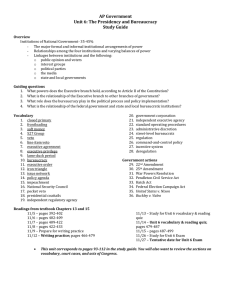
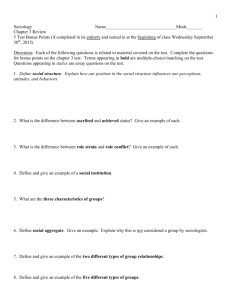

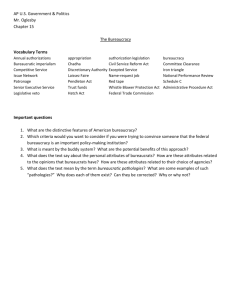
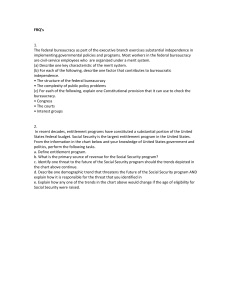
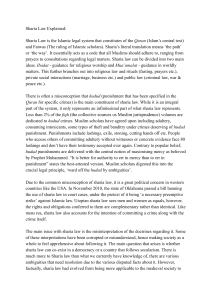
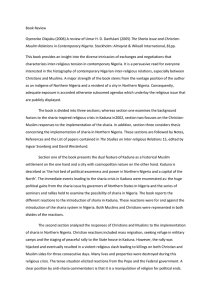
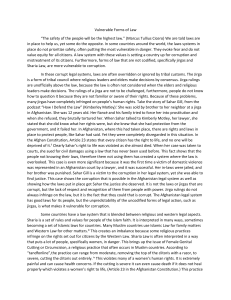
![Read_EPUB Street-Level Bureaucracy Dilemmas of the Individual in Public Service ([Read]_online)](http://s3.studylib.net/store/data/025572064_1-581d0f6d6f955d85248a62c6f7d6b3c2-300x300.png)
